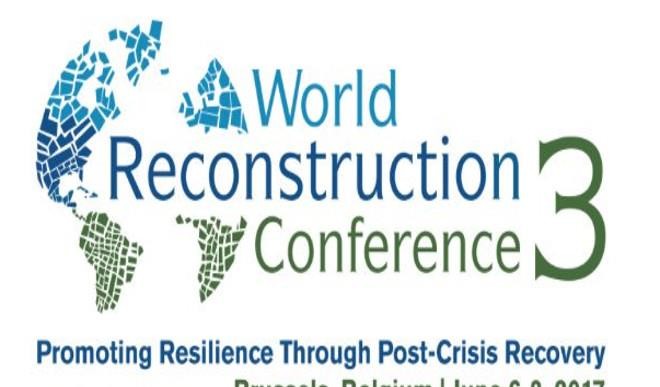PCNI at the World Reconstruction Conference in Brussels
From the 6th to the 9th of June, the World Reconstruction Conference held in Brussels, Belgium drawing actors involved in disaster risk reduction from across the world The conference which was the third edition following editions held in 2011 and 2014 brought together experts and practitioners to share best practices, lessons on recovery and […]


From the 6th to the 9th of June, the World Reconstruction Conference held in Brussels, Belgium drawing actors involved in disaster risk reduction from across the world The conference which was the third edition following editions held in 2011 and 2014 brought together experts and practitioners to share best practices, lessons on recovery and explore the nexus between resilience, recovery and poverty reduction.
The major theme of this year’s conference was on the promotion of resilience through post-crisis recovery. The overall goal of the conference was to identify effective and forward looking approaches to achieve resilience and post-crisis recovery models that emphasize sustainable development, ensure inclusive recovery for greater equity and equality, and leverage consensus for recovery to implement global frameworks such as the Paris Climate Agreement and Sustainable Development Goals as part of the overall recovery efforts.
The PCNI was represented at the event by the Vice Chairman, Mr. Tijjani Tumsah, Mr. Mohammed Danjuma, Head of Programme Management and Coordination and Committee member, Engineer Mohammed Gambo Umar. They participated in a session titled ‘Recovery in a Fragile and Conflict Situation’ which examined the interaction between disasters and conflict situations, exploring the ways in which the process of recovery can offer a unique opportunity to address underlying vulnerabilities.
In a presentation delivered on behalf of the Vice Chair, Engineer Umar highlighted the complexity of addressing the crisis in the Northeast which has a landmass seven times the size of Belgium, the impact of climate change, drought and desertification on the region and dynamic and evolving security situation in the area.
The session ended with a consensus on the need for a greater recognition of how underlying risks and vulnerabilities drive conflicts and how recovery efforts can be designed to address both remote and immediate causalities; better coordination between humanitarian and development actors; the need for effective prioritizing and sequencing of activities as well as the introduction of innovative financing solutions in the light of funding limitations; and the primacy of government in spearheading the recovery process and the importance of partners following the proper channels of engagement so as to promote greater synergy of efforts.
